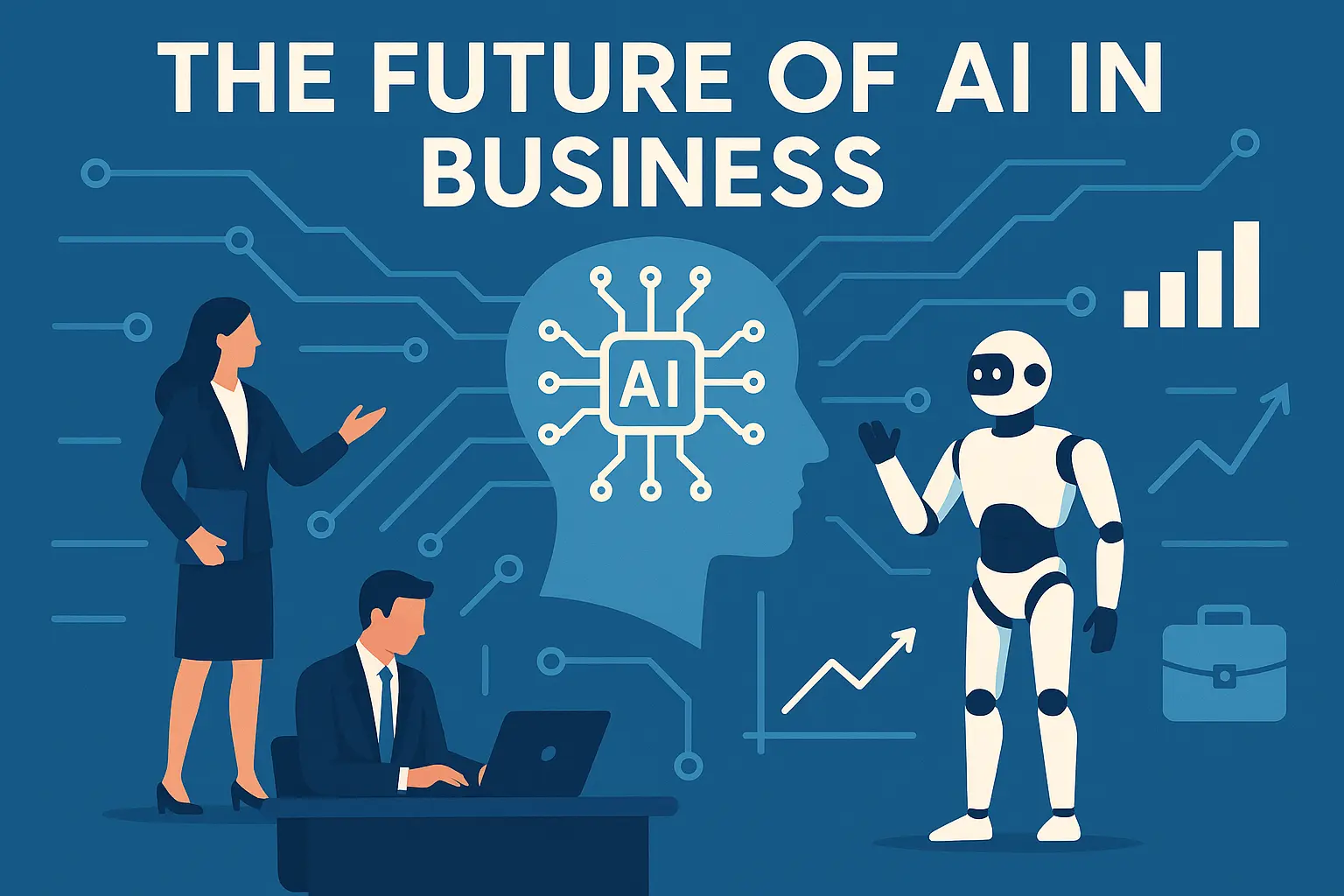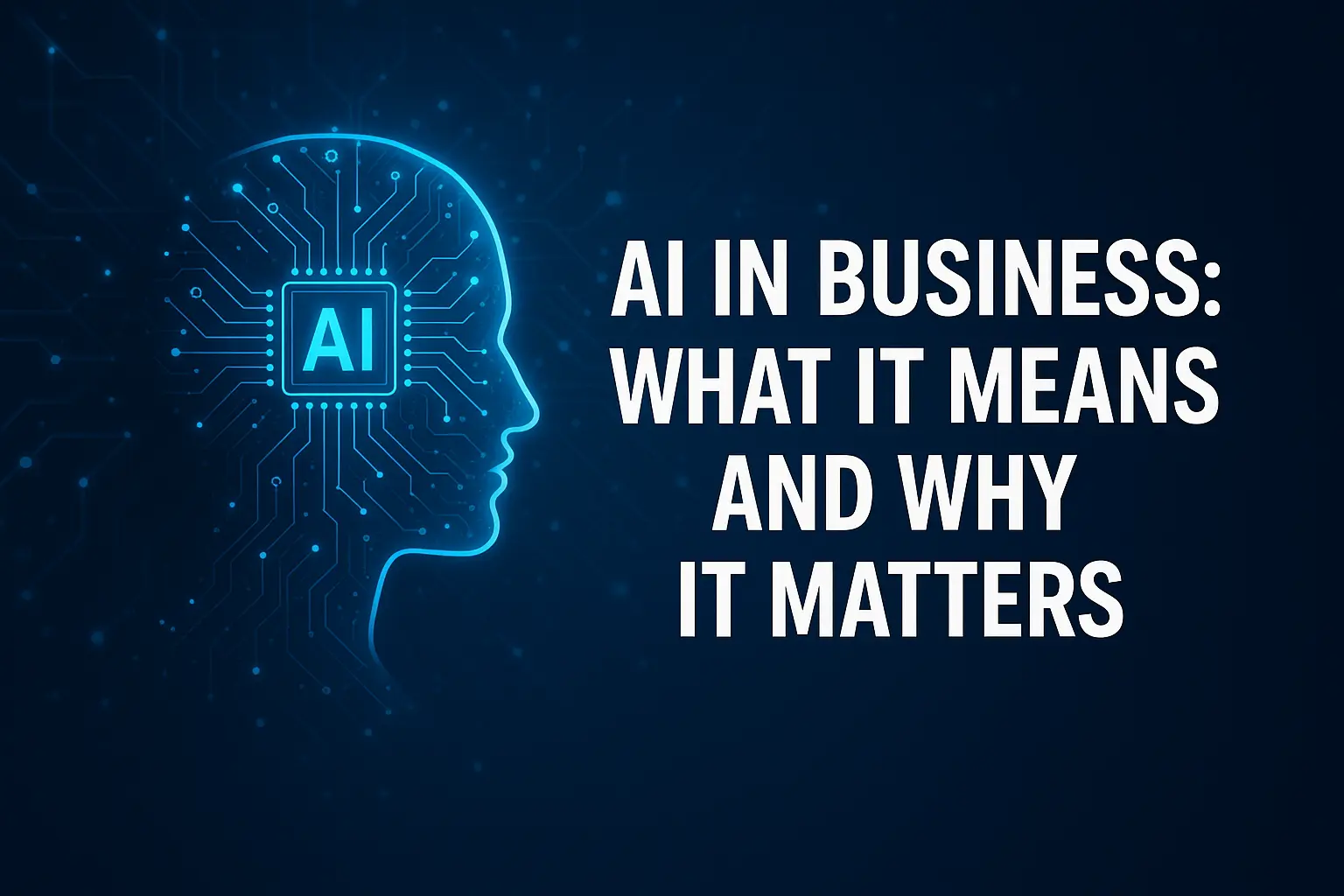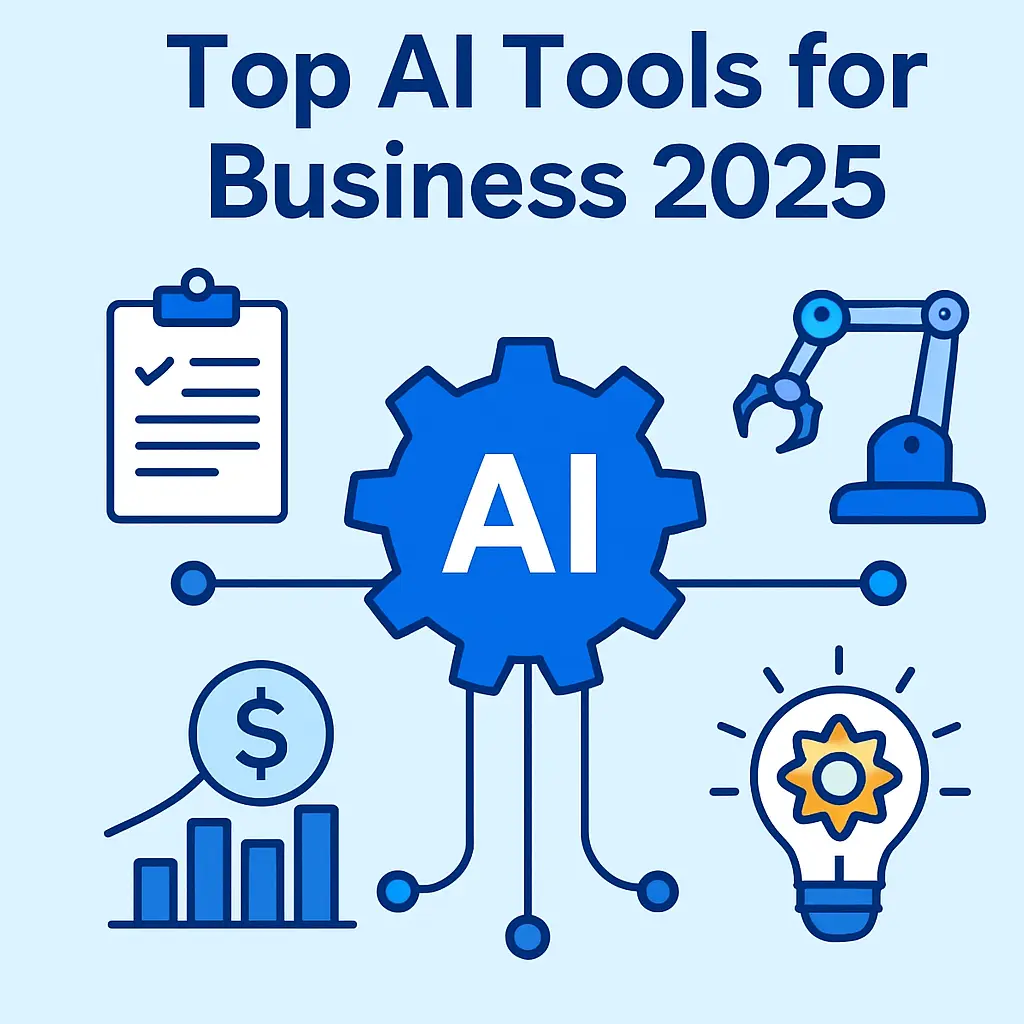Artificial Intelligence (AI) is no longer just a futuristic idea seen in movies. It’s already a big part of our daily lives—from voice assistants in phones to the recommendations we see on shopping websites. But did you know that AI is also changing the world of business in powerful ways?
In this article, we’ll explore what AI in business really means, why it’s important, how it helps companies, and even where it might cause problems. We’ll keep everything super simple so that even someone new to the topic can understand it.
What Is AI in Business?
AI in business means using smart machines and software to help companies work better and faster. These systems can think, learn, and even make decisions—just like humans, but much quicker.
For example, instead of having a person sort through hundreds of emails, a company can use AI to read and sort them instantly. This saves time and lets people focus on more important work.
Why Does AI Matter in Business?
AI matters because it helps businesses do more with less. It can cut costs, improve customer service, make better decisions, and even discover new ideas or trends that people might miss. Imagine having a very smart helper who never gets tired—AI is that helper for businesses.
Companies that use AI often find themselves growing faster and staying ahead of their competition.
Benefits of AI in Business
There are many benefits of AI in business, and here are some of the most important ones:
1. Saves Time and Money
AI can do tasks in seconds that would take humans hours. This means businesses spend less money and get things done quicker.
2. Better Decisions
AI can look at huge amounts of data and find patterns. This helps managers and business owners make smarter choices based on facts, not just guesses.
3. Improved Customer Service
Have you ever chatted with a website assistant that helps you find products or answers your questions? That’s AI in business communication. It helps customers get quick support, even when human workers aren’t available.
4. Smarter Marketing
AI can understand what customers like and send them the right ads at the right time. This helps businesses sell more products.
Real-Life AI in Business Examples
Here are a few real-world uses of AI in business that you might recognize:
-
Amazon uses AI to recommend products based on your shopping history.
-
Netflix suggests shows you might enjoy using AI-powered algorithms.
-
Banks use AI to detect fraud by spotting strange activity in your account.
-
Supermarkets use AI to keep track of stock and automatically order items when they run low.
These examples show how AI used in business can improve everyday operations and create better customer experiences.
AI in Business Intelligence
AI in business intelligence means using smart tools to understand data better. Businesses collect huge amounts of data every day—from sales numbers to customer feedback. AI can study this data and give useful insights like:
-
Which products are selling the most?
-
What time of year customers buy more?
-
What problems customers are facing?
This helps businesses plan better and stay ahead of trends.
How to Use AI in Business
You don’t have to be a tech wizard to start using AI in your business. Here are a few simple ways businesses use AI:
1. Chatbots for Customer Support
Add a chatbot to your website that answers common questions 24/7.
2. Email Automation
Use AI to sort emails, create replies, or find important messages quickly.
3. Smart Inventory Management
AI tools can keep track of product stock and let you know when to reorder.
4. Personalized Marketing
Send personalized emails or offers to customers based on their shopping habits.
If you’re wondering how can AI be used in business, start small with one of these options and grow from there.
Use of AI in Business Communication
AI is making business communication faster and smoother. For example:
-
AI tools can translate languages in real-time during video calls.
-
It can summarize long documents into short, clear points.
-
Voice assistants like Siri or Alexa can schedule meetings or send reminders.
These tools make it easier for teams to work together, even if they’re in different parts of the world.
Disadvantages of AI in Business
While AI has many benefits, it’s also important to talk about the downsides. Here are a few:
1. Job Losses
Some simple jobs might be done by AI instead of people, which can lead to fewer jobs.
2. High Costs
Setting up AI systems can be expensive, especially for small businesses.
3. Lack of Human Touch
AI can’t always understand emotions or offer the personal care that a human can. This can be a problem in customer service.
4. Data Privacy Risks
If not handled carefully, AI systems could expose private customer information.
Even though these problems exist, most experts believe the benefits of AI in business outweigh the disadvantages if used wisely.
The Future of AI in Business

As AI becomes more powerful and easier to use, we’ll see even more exciting changes in business. Here’s what we might expect:
-
AI writing articles, reports, and marketing content
-
Smart assistants that help managers make daily decisions
-
Virtual shopping assistants that know your taste better than you do
-
AI systems helping doctors make faster diagnoses
In short, AI is not just a trend—it’s a tool that will keep growing and shaping how we work and live.
Final Thoughts
AI in business is a game-changer. From smarter decisions to better customer service, it offers huge advantages. Whether you’re running a large company or a small startup, AI can help you grow and work more efficiently.
But remember, it’s not magic. Like any tool, it has to be used properly to bring the best results. Start small, learn as you go, and explore how AI can help your business move forward.
So, how will you start using AI in your business today?

















Leave a comment